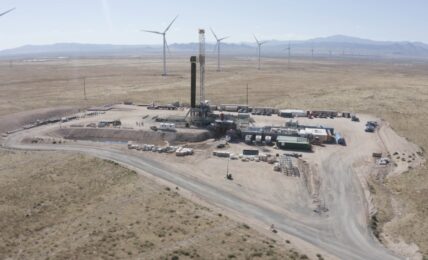Only 0.4% of companies have disclosed credible climate transition plans, according to a new report released today by environmental disclosure platform CDP, assessing the state of climate-related reporting from more than 18,600 companies.
CDP runs a global environmental disclosure system, enabling investors and other stakeholders to measure and track organizations’ performance in key environmental sustainability areas including climate change, deforestation, and water security. The new report is based on the 18,606 organizations that disclosed to CDP in 2022 in the climate category.
While the number of organizations reporting to CDP has been rising rapidly, increasing by more than 40% in 2022, CDP noted significant room for improvement on the level of disclosure provided, reporting that only 81 of the 18,600+ companies disclosed against all of its 21 key indicators denoting a credible climate transition plan.
In the report, CDP defines a climate transition plan as:
“A time-bound action plan that clearly outlines how an organization will achieve its strategy to pivot its existing assets, operations and entire business model towards a trajectory that aligns with the latest and most ambitious climate science recommendations, i.e., halving greenhouse gas (GHG) emissions by 2030 and reaching net-zero by 2050 at the latest, thereby limiting global warming to 1.5°C.”
Despite the increase in reporting companies, a smaller number were found to have presented credible transition plans compared to the prior year’s report, which indicated that 135 reported across all key indicators. CDP said that the reason for the decline was due to its stronger criteria this year, which now enforces that a plan must be aligned to 1.5°C and have a rigorous target.
Additionally, while 4,100 organizations reported that they have developed a 1.5°C-aligned climate transition plan, fewer than half of these reported that the plan was publicly available with a mechanism in place to collect feedback from shareholders,
While only a small fraction of companies were assessed as having presented credible transition plans, the report indicated progress, with 6,520 companies reporting that they expect to develop a transition plan within two years. Last year, only around 4,000 companies reported developing a low-carbon transition plan.
The report also examined companies’ progress in reporting against individual key elements of climate transition plans. The strongest areas of reporting included disclosure of climate risks and opportunities and on having governance structures in place to manage climate transition plans, with around 33% and 24% disclosing sufficiently on these. Weaker areas included disclosures on relevant, forward-looking financial details to support a climate transition, with only 3% providing these details, while only 7% disclosed a sufficient strategy to achieve net-zero.
By sector, power generation and financial services were found to have the strongest disclosure rates, with 38% and 35%, respectively, reporting across at least two-thirds of the key indicators, while the poorest disclosure rates were found in the apparel, fossil fuels and hospitality sectors.
Amir Sokolowski, Global Director, Climate at CDP, said:
“Tracking corporate disclosure against transition related indicators is essential to ensure companies are kept accountable to the targets and plans they set. Whilst overall disclosure of credible climate transition plans is low it is encouraging to see more companies recognizing the relevance of a climate transition plan and start their journey towards developing one.”
Click here to access the CDP report.
The post Less than 1% of Companies Have Presented Credible Climate Transition Plans: CDP appeared first on ESG Today.



